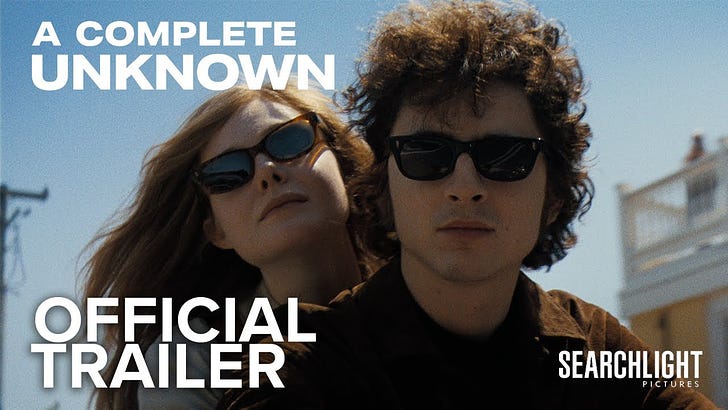Timothée Chalamet in his own words on how he became Bob Dylan
Timothée Chalamet in his own words deep dives into Dylan world and talks about becoming Bob Dylan for the soon to be released 'A Complete Unknown'.
It’s official. Timothée is a Dylanologist. I’m very much looking forward to seeing A Complete Unknown. I have every confidence that Timothée, James and all of the cast and crew have worked wonders. I don’t consider myself one who is looking for the sort of accuracy a lot of Dylan fan’s might be looking for, like whether it’s the correct capo for the period, or the exact mic used in Studio B or whether he’s wearing the right boots or coat (yes it helps, but I can suspend my disbelief). Will he have captured and conveyed the spirit of Bob Dylan and the time period? Of that I’m sure. Having read Chalamet’s words and listened to his interviews and comments on the film, this is a guy who’s dug deep and spent a lot of time with his muse. The guy knows his shit and like all Dylan fan’s he takes away his own impressions — Trev
**
[This is…
Keep reading with a 7-day free trial
Subscribe to The Joker and the Thief — Newsletter to keep reading this post and get 7 days of free access to the full post archives.



